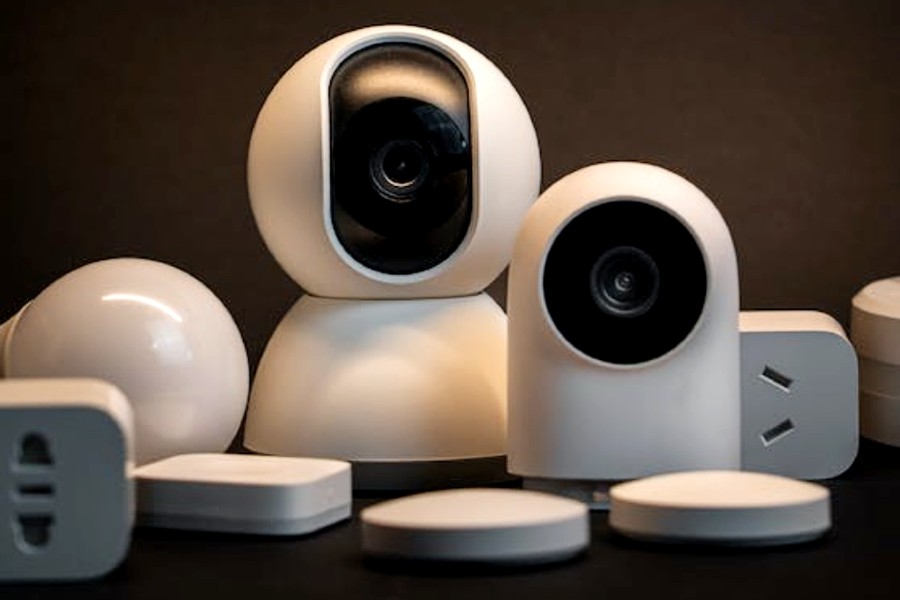
Security is an essential component of successful event planning, but not all events share the same risks or requirements.
From concerts with thousands of attendees to intimate corporate gatherings, every occasion presents unique challenges that demand customized security solutions. Security guard companies specialize in tailoring their services to meet these distinct needs, ensuring a safe environment while addressing event-specific concerns.
Concerts, for example, require intensive crowd management strategies, while corporate events prioritize privacy and seamless access for VIPs. Sports events often bring rowdy behavior, and outdoor festivals may face modern threats like unauthorized drones. By understanding these varying requirements, security teams create targeted strategies to protect attendees, safeguard assets, and enhance the overall experience.
This article explores how security companies adapt to diverse event needs through tailored approaches, advanced technology, and close collaboration with organizers. Whether it’s managing VIPs, handling alcohol-related incidents, or preventing modern risks, professional security ensures every event proceeds safely and smoothly.
Tailoring Strategies for Concerts Versus Corporate Events
Different event types require specialized approaches to ensure effective security. High-energy concerts often involve managing large, dynamic crowds, which means prioritizing crowd control barriers, bag checks, and metal detectors to prevent prohibited items from entering the venue. Additionally, security teams at concerts focus on quick responses to potential disorderly behavior while keeping attendees safe.
Corporate events, in contrast, require a discreet and professional security presence. Guards manage access control with guest lists, ensuring privacy for executives and attendees while maintaining a polished image for the event. For example, at a Fort Worth corporate conference, guards ensured guest privacy by supervising entry points, while concert security prioritized managing energetic crowds and preventing disruptions.
Managing VIP Attendees Safely
VIP attendees demand specialized attention, particularly at events involving high-profile individuals such as executives, celebrities, or political figures. Security teams create personalized plans to safeguard VIPs while allowing them to move seamlessly through the event. Secure entrances, private escort routes, and collaboration with personal bodyguards are all key components of these plans.
For instance, during a Dallas tech summit, VIP security included restricted-access areas and pre-planned escort routes to minimize risks. By tailoring their strategies, guards ensured that high-profile attendees could engage in the event without unnecessary exposure or interruptions.
Handling Alcohol-Related Incidents at Parties
Alcohol consumption at parties and large gatherings can increase the risk of disruptive or aggressive behavior. Trained security guards play a crucial role in managing these situations by de-escalating conflicts and safely removing unruly individuals without disrupting the event.
Guards are also responsible for monitoring alcohol service areas to ensure compliance with regulations and prevent over-serving. Their presence not only addresses immediate issues but also deters potential incidents before they escalate, allowing event organizers to focus on their guests’ enjoyment.
Ensuring the Safety of Participants at Sports Events
Sports events often attract passionate fans, which can lead to rowdy behavior if left unchecked. Security guards maintain order by enforcing seating arrangements, monitoring crowd dynamics, and intervening in disputes when necessary. In addition, they are trained to handle medical emergencies, ensuring attendees receive prompt assistance when needed.
Strategically stationed guards combined with clear communication systems allow for effective crowd management and a safe experience for everyone. Their visible presence acts as a deterrent to disruptive behavior, ensuring that the focus remains on the event rather than potential conflicts.
Preventing Unauthorized Drone Activity at Outdoor Events
Outdoor events face unique challenges, including the increasing use of unauthorized drones. These devices can breach privacy, create safety hazards, or even disrupt proceedings. Security teams trained in drone detection technology play a critical role in identifying and mitigating these risks.
Guards collaborate with local authorities to enforce no-fly zones and use tools like drone trackers to locate and neutralize potential threats. For example, at an outdoor festival in Fort Worth, a security team used drone detection technology to identify an unauthorized device, ensuring the safety of attendees and performers while maintaining the event’s privacy standards.
Conducting Pre-Event Risk Assessments
Effective security begins with thorough planning. Security companies conduct detailed pre-event risk assessments to identify vulnerabilities and develop customized strategies. This includes analyzing event layouts, estimating crowd sizes, and pinpointing high-risk areas such as entry points, parking lots, and stages.
Risk assessments allow guards to anticipate potential challenges and allocate resources effectively. For example, a large Dallas music festival benefited from an assessment that led to the strategic deployment of guards near stage barricades and high-traffic zones, preventing overcrowding and ensuring smooth crowd flow.
Leveraging Technology for Event Security
Modern technology enhances the effectiveness of event security. Surveillance cameras, mobile apps, and access control systems provide real-time monitoring, allowing guards to quickly respond to incidents. Portable communication devices ensure seamless coordination between team members and with event organizers.
Security companies also use advanced tools like thermal imaging and facial recognition for additional layers of protection. These technologies not only improve operational efficiency but also provide organizers with valuable insights into attendee behavior, helping to refine future security strategies.
Working with Event Organizers and Local Authorities
Collaboration is vital for seamless event security. Security companies work closely with event organizers, venue managers, and local law enforcement to create comprehensive security plans. Clear communication protocols and emergency action plans ensure all parties are aligned in their roles and responsibilities.
This collaborative approach allows for a rapid and organized response to emergencies. For instance, at a Fort Worth sporting event, security guards in Fort Worth coordinated with local authorities to enforce crowd control measures and respond to an unexpected medical emergency, ensuring minimal disruption to the event.
Training Guards for Event-Specific Scenarios
Event-specific challenges demand specialized training for security guards. Guards are trained to manage scenarios such as crowd surges, conflict resolution, and emergency evacuations, tailored to the type of event. For example, security at concerts focuses on managing high-energy crowds, while guards at corporate events emphasize discretion and professionalism.
Adaptability is another critical aspect of training. Guards are prepared to respond to changing conditions, such as unexpected weather, power outages, or sudden technical failures. This ensures they can maintain safety and order regardless of the situation, reinforcing their value in creating a secure environment.
Balancing Security and Guest Comfort
The best security teams strike a balance between maintaining safety and fostering a positive guest experience. Visible but approachable guards help attendees feel protected without creating an intrusive atmosphere. This balance is particularly important at events where guest comfort and enjoyment are priorities, such as weddings or corporate galas.
Professional demeanor and effective communication are essential. Guards who are courteous and well-trained in customer service enhance the overall experience. For instance, at a Dallas tech summit, security guards not only managed access control but also assisted attendees with directions, contributing to a seamless and welcoming environment.
Security companies play a pivotal role in ensuring the success of events by tailoring their services to the unique needs of each occasion. From managing large concert crowds to providing discreet VIP protection at corporate gatherings, these companies adapt strategies, leverage technology, and provide specialized training to meet diverse challenges.
The collaboration between security teams, event organizers, and local authorities enhances safety while maintaining a positive experience for attendees. As events grow in scale and complexity, professional security services remain an indispensable part of planning. For event organizers seeking a secure and successful event, partnering with experienced security providers is an investment in safety, efficiency, and peace of mind.
Latest Posts
- AI’s Creative Takeover: Copyright Chaos From Harlem To Harare
- GHCC Celebrates Phylicia Rashad At Year-End Gala In Harlem Hotel
- Sponsored Love: DTF Printing After Washing Color Depth Analysis And Solution
- Effective Ways To Grow Your Threads Followers
- Earthy Sophistication: Why Earth Tone Tuxedo Suits Are A Must-Have
Become a Harlem Insider!
By submitting this form, you are consenting to receive marketing emails from: . You can revoke your consent to receive emails at any time by using the SafeUnsubscribe® link, found at the bottom of every email. Emails are serviced by Constant Contact








